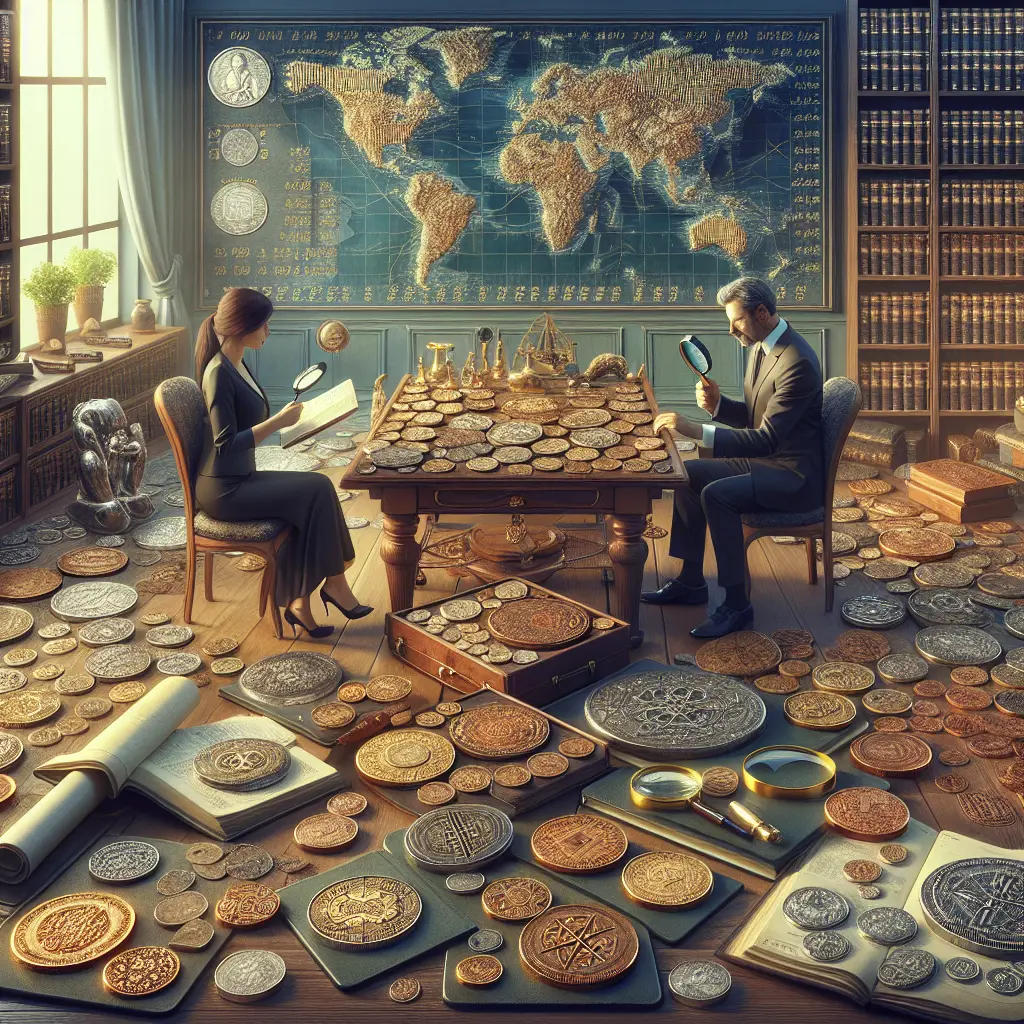
Rare coin collecting, often referred to as numismatics, is a captivating hobby that has stood the test of time, intertwining history, art, and economics in one fascinating pursuit. It's not just about hoarding old pieces of metal; it's about preserving pieces of history and potentially reaping substantial financial rewards. From ancient coins to gold coins, silver coins, and investment coins, this guide will navigate through the intricacies of building a numismatic collection that could rival any museum exhibit.
The Rise of Alternative Collectibles
Interestingly, the passion for collecting isn't confined to the numismatic community. Recently, millennials have sparked a Pokémon renaissance, shifting significant investments towards what was once considered mere child's play. According to industry leaders in collectibles grading, Pokémon and baseball cards are fetching astounding prices at auctions, showcasing a broader acceptance and appreciation of diverse collectibles (source: Forbes). This trend highlights a growing recognition of nostalgic items as valuable assets, paralleling the age-old practice of rare coin collecting.
The Expanding Universe of Collecting
Collecting isn't limited to tangible assets like coins or cards. Take, for instance, the personal stories of individuals amassing impressive collections without breaking the bank—be it 55 pairs of sneakers or $1,000 sneakers (source: Sneaker News). These narratives not only demonstrate prudent financial management but also reflect the meticulous dedication seen in numismatics. Similarly, an individual transformed 4,000 My Little Pony toys into a celebrated fine art collection (source: ArtNet), underscoring the artistic and cultural valuation akin to that of ancient or gold coins.
Learning from Collecting Veterans
As with any hobby or investment, there are lessons to be learned. A retired collector expressed regret over certain frugal decisions that perhaps prevented him from acquiring more valuable pieces earlier on (source: AARP). This mirrors the sentiments within the rare coin community where timing, knowledge, and sometimes boldness can significantly impact rare coin values.
Coin Collecting: A Primer
For beginners interested in delving into numismatics, understanding the basics is crucial. Coin collecting tips often start with learning about coin grading—a system used to determine the condition and value of a coin. Entities like the American Numismatic Association provide resources and guidelines that help collectors make informed decisions (source: American Numismatic Association).
Furthermore, attending coin auctions offers insights into coin values and market trends while providing opportunities to observe or participate in the bidding process. Platforms like Heritage Auctions offer regular auctions where one can observe or engage in buying collectible coins.
Diverse Assets in Numismatics
Rare coin collectors often diversify their portfolios by including a variety of metals and epochs. Gold coins and silver coins are particularly popular due to their intrinsic metal value and historical significance. Investment coins like American Eagles or Canadian Maple Leafs are favorites among those looking at numismatics from an investment perspective (source: U.S. Mint).
Ancient coins bring historical depth to any collection. They tell tales from gone civilizations like Rome or Greece, offering a tangible connection to the ancient world. These can be acquired from reputable rare coin dealers who specialize in authenticated and graded pieces.
Where to Buy and Sell
Navigating where to buy or sell rare coins is pivotal. Rare coin dealers are often the go-to experts for acquiring new pieces or learning more about one's collection. Websites like the Professional Numismatists Guild offer directories of trusted dealers (source: PNG Dealers).
Online platforms also provide avenues for expanding one’s collection. eBay and virtual coin auctions have made it easier for collectors around the world to access collectible coins that were once out of reach.
Community and Resources
The numismatic community is vibrant and resourceful. Forums and clubs provide spaces for enthusiasts to share stories, trade coins, and offer advice. For beginners, a comprehensive coin collecting guide might include subscribing to magazines such as "Coin World" or joining local numismatic societies.
Ethical Considerations
As with any collecting, ethics play a significant role. Organizations like Charity Navigator help ensure that your investments in numismatic collections contribute positively, supporting ethical practices within the industry (source: Charity Navigator).
In Conclusion
Rare coin collecting offers a unique blend of history, artistry, and investment. Whether you're drawn to the allure of ancient coins or the solid value of gold and silver coins, numismatics is a field rich with opportunities for personal and financial fulfillment.
As we've explored the multifaceted world of collecting—from Pokémon cards to rare coins—it's clear that the passion for preservation and investment transcends categories. Each collection tells a personal story, each item holding its own fragment of history or personal significance.
To all aspiring collectors, may your endeavors not only enrich your understanding of history and art but also bring financial wisdom and rewards. Keep exploring, keep collecting, and let each coin add not just value but also story to your treasure trove.
Happy Collecting, Harvey Denton